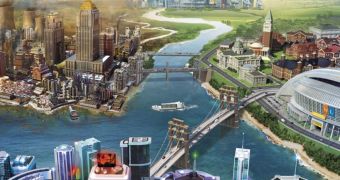SimCity was one of my favorite series of games when I was young and I spent tens of hours trying to become a better mayor, aiming to get a balanced budget and create a utopia for my citizens.
When Maxis and Electronic Arts announced that they would be rebooting the experience, I was thrilled and could barely wait for the launch date, despite some worrying information coming out from those who managed to play the game before it was released.
For the first few days, I was actually happy with the experience that SimCity created. It allowed me to focus on developing one of the cities to its best possible version, before trying to link it with others to create a prosperous region and aim for one of the cool special projects.
And then, I discovered that the game was too limiting and that it would never be able to deliver the open experience that I was expecting.
There were the limits of space, which meant that players were unable to create settlements that did more than one thing at a time with a modicum of efficiency.
There were the limits of the road network, which made it hard to a city that grew towards maximum capacity to distribute resources around as it should.
And there were limits linked to the way cities worked inside a region, which made it very difficult to actually create a shared project.
SimCity was beautiful and, at times, mesmerizing, but it was ultimately a game that failed to deliver on the core promise of the city building genre: to give the player the freedom to create the settlement of his dreams.
Since it was first launched, the team at Maxis has delivered a lot of patches, DLC content and even an expansion called Cities of Tomorrow, but I have never returned because my disappointment with the initial release is still too big.

 14 DAY TRIAL //
14 DAY TRIAL //